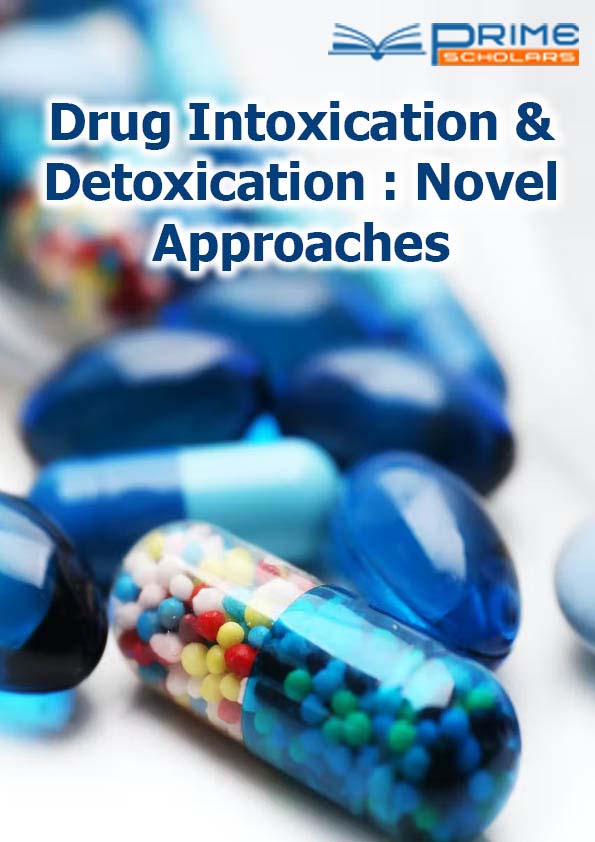Perspective - (2023) Volume 4, Issue 3
A Soothing Symphony: Understanding Depressants and their Impact
Osamu Dazai*
Department of Pharmacy, Waseda Univeristy, Japan
*Correspondence:
Osamu Dazai,
Department of Pharmacy, Waseda Univeristy,
Japan,
Email:
Received: 30-Aug-2023, Manuscript No. DIDNA-23-17906;
Editor assigned: 01-Sep-2023, Pre QC No. DIDNA-23-17906 (PQ);
Reviewed: 15-Sep-2023, QC No. DIDNA-23-17906;
Revised: 20-Sep-2023, Manuscript No. DIDNA-23-17906 (R);
Published:
27-Sep-2023, DOI: 10.36648/DIDNA 4.3.28
Introduction
In the realm of psychoactive substances, the category of depressants,
often associated with calming and sedative effects,
plays a pivotal role. Depressants have a long history of medicinal
and recreational use, offering both therapeutic benefits
and potential risks. In this article, we will explore the world of
depressants, understand their applications, and consider their
impact on individuals and society as a whole.
Description
Depressants, also known as central nervous system (CNS) depressants,
are substances that slow down the brain’s activity
and, as a result, the rest of the body’s functions. They work by
enhancing the effects of a neurotransmitter called gamma-aminobutyric
acid (GABA), which inhibits brain activity. This suppression
leads to feelings of relaxation, reduced anxiety, and
sedation, making depressants highly valuable for various purposes.
Anxiety and Stress Relief: Benzodiazepines, a class of
depressants, are commonly prescribed to alleviate anxiety and
panic disorders. They are also effective in helping individuals
manage stress. Another category of depressants, called sedative-
hypnotics, includes drugs like zolpidem and eszopiclone,
which are used to treat insomnia. By slowing down brain activity,
they promote relaxation and help people fall asleep.
Depressants are utilized for their muscle-relaxing properties in
treating conditions involving muscle spasms or tension. Antiepileptic
depressants help in controlling seizures and managing
epilepsy.
Depressants have a significant presence in our society, and their
use often extends beyond therapeutic purposes: One of the
most widely consumed depressants, alcohol has deep cultural
and social roots. Its relaxing effects are often associated with
social gatherings, relaxation, and celebrations. However, excessive
alcohol consumption can lead to addiction and a range of
health issues. Some individuals misuse depressants for their
calming effects and to experience mild euphoria. While this can
provide temporary relief from stress and anxiety, it also carries
the risk of dependence. Misuse or overuse of depressants
can result in adverse effects, including impaired motor skills,
drowsiness, slowed reflexes, and impaired judgment. Combining
depressants with other substances, especially alcohol, can
be dangerous and even life-threatening.
Long-term use of depressants can lead to mental health issues,
including depression and emotional numbness. Abrupt cessation
of some depressants, particularly benzodiazepines, can
result in severe withdrawal symptoms, making it challenging
for individuals to discontinue their use. The non-medical use of
prescription depressants, often acquired through illegal means,
can lead to legal consequences, harm, and dependence. The
balanced use of depressants involves recognizing their therapeutic
benefits while being aware of potential risks. Addiction
to depressants requires professional intervention. Access to
treatment programs, counselling, and support networks is essential
for those struggling with addiction. Policymakers should
adopt measures that balance accessibility for medical purposes
with restrictions to prevent misuse and illicit trade.
Conclusion
Depressants play a fundamental role in our lives, offering relief
from anxiety, stress, and sleeplessness. Yet, they also bring a set
of complexities and challenges that warrant respect and caution.
Achieving a well-rounded perspective involves recognizing
their therapeutic contributions while being vigilant about
the potential pitfalls. In a world where relaxation, sedation, and
tranquillity are sought after, understanding the complexities of
depressants is crucial. By striking a balance between benefits
and risks, we can navigate the world of depressants responsibly
and safely.
Citation: Dazai O (2023) A Soothing Symphony: Understanding Depressants and their Impact. Drug Intox Detox: Novel Approach-
es. 4:28.
Copyright: © 023 Dazai O. This is an open-access article distributed under the terms of the Creative Commons Attribution Li-
cense, which permits unrestricted use, distribution, and reproduction in any medium, provided the original author and source
are credited.
